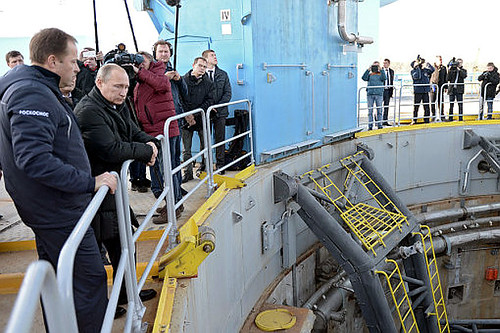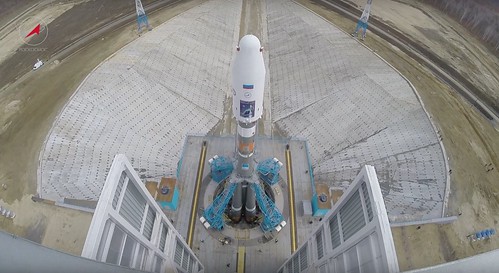Russia: Failure is Always An Option
Wednesday, April 27th, 2016The inaugural launch of a Soyuz-2.1a from the ridiculously corrupt Vostochny Cosmodrome in Russia’s Far Eastern Amur Oblast was to be something big. Putin made the trip to view it and, naturally, it failed. Well, not completely: it was scrubbed after the computers took over, roughly at the T-90-second mark.

It’s a good thing the computers are doing their job, because Russians aren’t capable. Without the contribution of Ukraine’s Yuzhmash, they’ll probably continue to be the primary exporter of failure. Together with being a state sponsor of terrorism worldwide, they give the term “embrace failure” new meaning.
Second attempt will be later today. If that fails, Russian rocket scientists will start disappearing. Putin confirmed somebody’s going to jail already.




